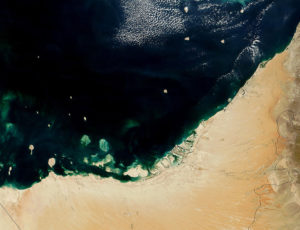
Ursa Space Systems incorporates satellite imagery into business intelligence
Ursa Space Systems, a New York-based startup provides its clients with business intelligence based on satellite data. Last October 25, the company announced that they had just secured a 7 million USD in funding. They acquired the funds via a partnership with the Paladin Capital Group, an investment firm from Washington.
Ursa Space’s growth
Now with additional finances, Ursa is gearing up to improve its products and expand its client list. Ursa will do this by acquiring more satellite imagery and continuing to develop algorithms used to create data products. Machine learning and machine vision are two key components of their services. With their funds, they will also be expanding their pool of developers.
At present, Ursa maintains an eleven-member team. Their target is to add 15 more people by mid-2018 according to Adam Maher, Ursa’s Founder, and President.
Ursa’s latest funding round was also secured with the participation of New York-based S&P Global, New Enterprise Associates of Menlo Park, and RRE Ventures
Optimism for Satellite Data
Ursa’s successful capital acquisition is one of the latest in a string of funding campaigns by companies offering satellite-based analytical data. Space Know, Orbital Insight, and Descartes Labs, all had successful funding campaigns this year.
Eagle View, a data firm also acquired a smaller company, Omni Earth as part of its expansion drive.
“There is a real market for our products and an appetite in the venture capital community to invest in them.” Derek Edinger, Ursa co-founder, and Vice President.
Maher expressed his gratification in seeing invest in Ursa and support its continued development of space-based data products.
Ursa gathers data from synthetic aperture radar (SAR) satellites which can see through clouds, rain, inclement weather, and darkness. Then, the company reconciles this data with other official information sources to create reports.
Even customers who have never used satellite-based data before will find the reports easy to understand, Edinger said.
The company publishes reports on oil inventories weekly. Last May, Ursa started providing reports on China’s oil inventories. Now, the company also generates reports on the Middle East, North Africa, and Carribean oil inventories. By 2018, Ursa aims to produce similar reports for Asia-Pacific, African, and American regions.










